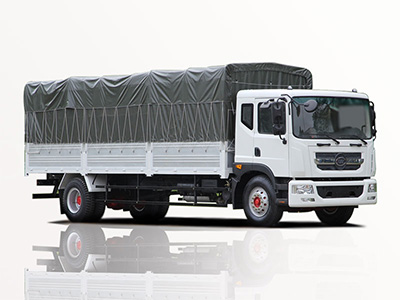Introduction
Crane carrier trucks are specialized vehicles designed to transport cranes and heavy equipment efficiently. They play a vital role in construction, logistics, and other industries that require the moving of heavy loads. Understanding the intricacies of crane carrier trucks, their applications, and the types available can significantly impact project efficiency and safety. This article delves into the world of crane carrier trucks, providing practical advice, examples, and answers to frequently asked questions.
What are Crane Carrier Trucks?
Crane carrier trucks are heavy-duty vehicles equipped with a chassis that accommodates crane superstructures. These trucks are designed for high durability, stability, and load capacity, making them essential in various industries, including construction, mining, and emergency services.
How Do Crane Carrier Trucks Work?
The operation of crane carrier trucks involves several components working in harmony:
- Chassis: The base of the truck, designed to support heavy loads.
- Crane Installation: Various types of cranes can be mounted on the carrier, depending on the purpose.
- Power Source: Most truck cranes utilize diesel engines for their power needs.
- Hydraulic Systems: These systems enable the lifting and lowering of heavy loads with precision.
Types of Crane Carrier Trucks
There are several types of crane carrier trucks, each designed for specific applications:
1. Truck-Mounted Cranes
Truck-mounted cranes are versatile vehicles mounted on a truck chassis. They can traverse through tight spaces and are ideal for urban applications.
2. Crawler Cranes
Crawler cranes are equipped with tracks instead of wheels, providing excellent stability and load-bearing capacity. They’re suitable for rough terrains.
3. Aerial Work Platforms
These vehicles are designed for reaching elevated heights, making them ideal for maintenance and construction tasks.
4. Boom Trucks
Boom trucks have long telescopic arms that can extend vertically and horizontally to lift heavy objects efficiently.
Key Components of Crane Carrier Trucks
Each crane carrier truck comprises several essential components that ensure its functionality and safety:
Engine
The engine powers the truck and its crane. Typically, these trucks use diesel engines for their robustness.
Hydraulic System
The hydraulic system is vital for controlling the movement of the crane. It provides the lifting power needed for heavy loads.
Chassis and Suspension
The chassis must be sturdy and designed to bear maximum loads. The suspension system further enhances stability during transport.
Crane Arm
The crane arm can vary in length and material, influencing its load capacity and versatility.
Advantages of Using Crane Carrier Trucks
Crane carrier trucks offer numerous advantages for businesses:
1. Flexibility
With the ability to transport cranes across various terrains, these trucks provide exceptional operational flexibility.
2. Increased Efficiency
The integration of the lifting mechanism with transportation capabilities streamlines processes and reduces delivery times.
3. Enhanced Safety Features
Modern crane trucks come with advanced safety features, including stability controls and load monitoring systems, which mitigate risks.
Choosing the Right Crane Carrier Truck
When selecting a crane carrier truck, consider the following factors:
1. Load Capacity
Determine the maximum weight of the loads you intend to lift and choose a truck accordingly.
2. Terrain
Assess the types of terrain the truck will navigate. For rough surfaces, a crawler crane may be the best option.
3. Crane Type
Select a crane type that fits your operational needs, whether it be a boom crane for height or a truck-mounted crane for flexibility.
Maintenance and Care for Crane Carrier Trucks
Regular maintenance is critical for the efficient operation of crane carrier trucks:
1. Routine Inspections
Conduct routine inspections to ensure that all components are functioning correctly. Regular checks can prevent costly breakdowns.
2. Hydraulic System Maintenance
Monitor hydraulic fluid levels and check for leaks to maintain optimal performance.
3. Engine Care
Regularly service and maintain the engine by changing the oil and replacing filters to extend its lifespan.
Examples of Crane Carrier Truck Applications
Crane carrier trucks are used in various industries. Here are some practical examples:
1. Construction Sites
Crane carrier trucks are frequently used to transport building materials, heavy machinery, and construction personnel.
2. Oil and Gas Industries
These trucks are crucial for setting up drilling machines and transporting pipe segments.
3. Disaster Response
In emergency scenarios, crane trucks are essential for the removal of debris and aiding rescue operations.
Cost Considerations for Crane Carrier Trucks
The cost of crane carrier trucks varies based on several factors, including:
1. Type of Truck
Prices can differ significantly among truck-mounted, crawler, and boom trucks due to their design and functionality.
2. Brand and Model
Established brands often come at a higher price due to their reputation and reliability.
3. Additional Features
Advanced safety and performance features can also increase the purchase price of the trucks.
Frequently Asked Questions (FAQ)
1. What is the typical load capacity of crane carrier trucks?
Typical load capacities can range from 10 tons to over 100 tons, depending on the truck model and type of crane installed.
2. How do I choose the right crane for my needs?
Consider factors such as the weight of loads, lifting height, and the type of terrain while selecting the appropriate crane.
3. What are the common maintenance practices for crane carrier trucks?
Common practices include regular inspections, hydraulic system checks, and engine servicing.
4. How much does a crane carrier truck cost?
The price can vary widely, generally ranging from $50,000 to $500,000 based on the type, brand, and features.
5. Are crane carrier trucks safe to operate?
When operated by trained professionals following safety protocols, crane carrier trucks can be very safe.
6. Can crane carrier trucks operate in rough terrain?
Crawler cranes, in particular, are designed to operate effectively on rough or uneven surfaces, offering enhanced stability.





